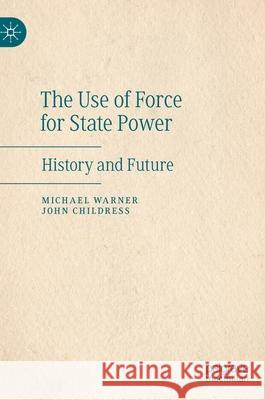The Use of Force for State Power: History and Future » książka
topmenu
The Use of Force for State Power: History and Future
ISBN-13: 9783030454098 / Angielski / Twarda / 2020 / 315 str.
The Use of Force for State Power: History and Future
ISBN-13: 9783030454098 / Angielski / Twarda / 2020 / 315 str.
cena 362,27
(netto: 345,02 VAT: 5%)
Najniższa cena z 30 dni: 346,96
(netto: 345,02 VAT: 5%)
Najniższa cena z 30 dni: 346,96
Termin realizacji zamówienia:
ok. 22 dni roboczych.
ok. 22 dni roboczych.
Darmowa dostawa!
Kategorie BISAC:
Wydawca:
Palgrave MacMillan
Język:
Angielski
ISBN-13:
9783030454098
Rok wydania:
2020
Wydanie:
2020
Ilość stron:
315
Waga:
0.69 kg
Wymiary:
21.01 x 14.81 x 2.69
Oprawa:
Twarda
Wolumenów:
01
Dodatkowe informacje:
Wydanie ilustrowane











